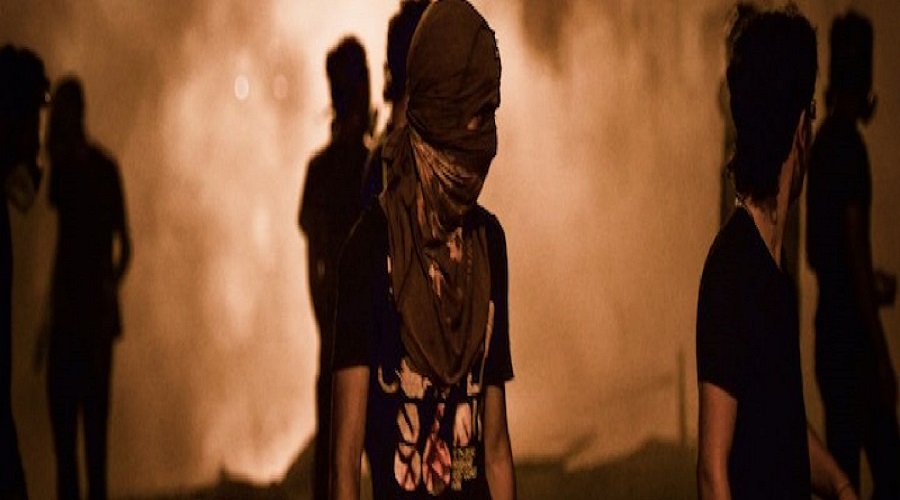It is evident that the Middle East in general, and the Arab Gulf particularly, is facing strategic challenges. This is reflected in the regional states' war against terrorism, where the twin-peaks of al-Qaeda/ISIS and Iranian-deployed subversive groups, namely Hezbollah, compete for infamy through acts of barbarity and cruelty. From bombing campaigns to beheadings, terrorism in the wider region is both personal and grotesque.
However, terrorist violence is not equally distributed. Some states have borne the brunt of insurgency and terrorism, while others have been relatively cushioned. Exposure seems to be linked to proximity to Iranian territorial ambitions. There is growing use of insurgents, militias and proxies that claim a Shi'ite sectarian ideology — but fly the flag of the Islamic Republic — in pursuit of an Iranian northern corridor that links, overland, Iran to Iraq, Syria and Lebanon in order to project the Iranian influence over the Eastern Mediterranean littoral.
Iranian Influence
ISIS attracted many of its rank-and-file Iraqi and Syrian fighters because in some places, like al-Anbar governorate in Iraq and Aleppo in Syria, people fear Iranian militias more than the perverted radical ideology of ISIS. And that speaks volumes. In Iraq, survivors from the liberated-from-ISIS cities of Mosul, Ramadi and Tikrit, recall horrendous crimes committed by ISIS followed by equally horrendous crimes committed by unaccountable Iranian-backed militias. The pattern was repeated in Syria. Only Lebanon — where Iran had already consolidated its position with the assassination of Rafiq Hariri (2005) and its proxy Hezbollah, is the dominant military and political power — evaded the recent terrorism-insurgency tsunami. One can claim that Beirut already floats in Tehran’s orbit.
Iran, however, has not been nearly as successful in trying to construct its southern corridor. Collective action among the kernel of Arab Gulf security (Bahrain, Kuwait, Saudi Arabia and the United Arab Emirates) has limited the Islamic Republic’s capabilities through a combination of signaling and deterrence, counter-terrorism operations and the raw economic and political clout they wield internationally. Tehran may retain a toe-hold in Yemen, but it is tenuous and will likely buckle under the combined weight of the Arab coalition military power and the legitimacy of the Abdrabbuh Mansour Hadi's government. Tehran’s efforts have not gained much traction — not for lack of trying — along the south-western Arabian Gulf littoral.
"Operation Axe"
However, in Bahrain, Iran is unrelenting. Having failed to acquire territories in the Gulf illegitimately, the Islamic Republic has prioritized deploying Islamic Revolutionary Guard Corps (IRGC) and Hezbollah cells to radicalize, arm, train and lead an insurgency against Bahrain’s government. This bubbled over in and after 2011, when Iran provoked the use of violence both in mass political movements, through riots, lynching and in smaller, terrorist groups, notably: The Military Wing of Hezbollah Bahrain (MWHB), Sacred Defense Bahrain (SDB), the Youth of 14 February and an assortment of others.
While Bahrain is very active in the war against al-Qaeda and ISIS and, together with the UAE, is among the most advanced in interdicting terror financing and providing intelligence support to regional and international partners, its main challenge is also its most enduring; Revolutionary Iran. Over the past decades, the Kingdom has had its hands full in trying to contain Iranian-backed terrorist groups and while it has managed to infiltrate and, ultimately, overcome the majority of them, it is a little like playing whack-a-mole. Once the government get one, another pops up.
The Al Wafa Islamic Movement’s terrorist wing — Al-Ashtar Brigades (Saraya al-Ashtar) — is the latest mole to pop-up.
Fast forward to May/June 2017. Bahrain launched "Operation Axe," against Al-Ashtar Brigades—a fundamentalist organization with links to the Iranian Revolutionary Guard Corps and Hezbollah. The operation was intended as a sweeping-up of al-Ashtar cells, aiming to break their strangle-hold of some of the towns in the Northern Governate, Diraz. This was prioritized following investigations that linked three terrorist attacks to the group: the improvised explosive device (IED) attack against a police patrol in Abu Saiba on February 4, 2017; the IED attack in Sanabis; and the grenade attack on security forces in Samaheej on April 7, 2017.
Operation Axe resulted in the capture of an assortment of wanted terrorists and the confiscation of weapons materials in the town of al-Dair. An average of 52 kilograms of high-grade TNT explosives, including C4, urea nitrate, ammonium nitrate and raw materials, were discovered at the scene and authorities concluded that such weapons and materials could not have been produced in Bahrain—they were imported. Interrogations revealed weapons smuggling from Iran and the close operational relationship between Iran/Hezbollah, via Murtadha al-Sindi, and Al-Ashtar Brigades occur through the terrorist-cum-interlocutor, Hussain Ali Ahmed Dawood, who fled Bahrain to Iran, where he continues to orchestrate terrorist attacks against Bahrain. Dawood was sentenced (in absentia) to life imprisonment, and his Bahraini nationality has been revoked, for his involvement in three separate terrorism cases.
Despite the political and economic efforts to overcome the terrorist threat, Manama remains embattled by Iranian agents. Its counter-terrorism approach has greatly limited terrorist capabilities, but has not been able to fully overcome them. This is largely because Iran remains free to pursue its destabilization policies with impunity. So as long as the international community rewards Iran for its nuclear freeze, but does not punish it for its support for terrorism, then crises throughout the region will continue unabated. From Yemen to Syria to Kurdistan to Bulgaria to New York to Argentina, the long-arm of Iran is present and is persistent. If Bahrain is to win the war on terrorism, if the US and EU are to win their wars on terrorism, then Tehran must be held to account. There is no other way!


